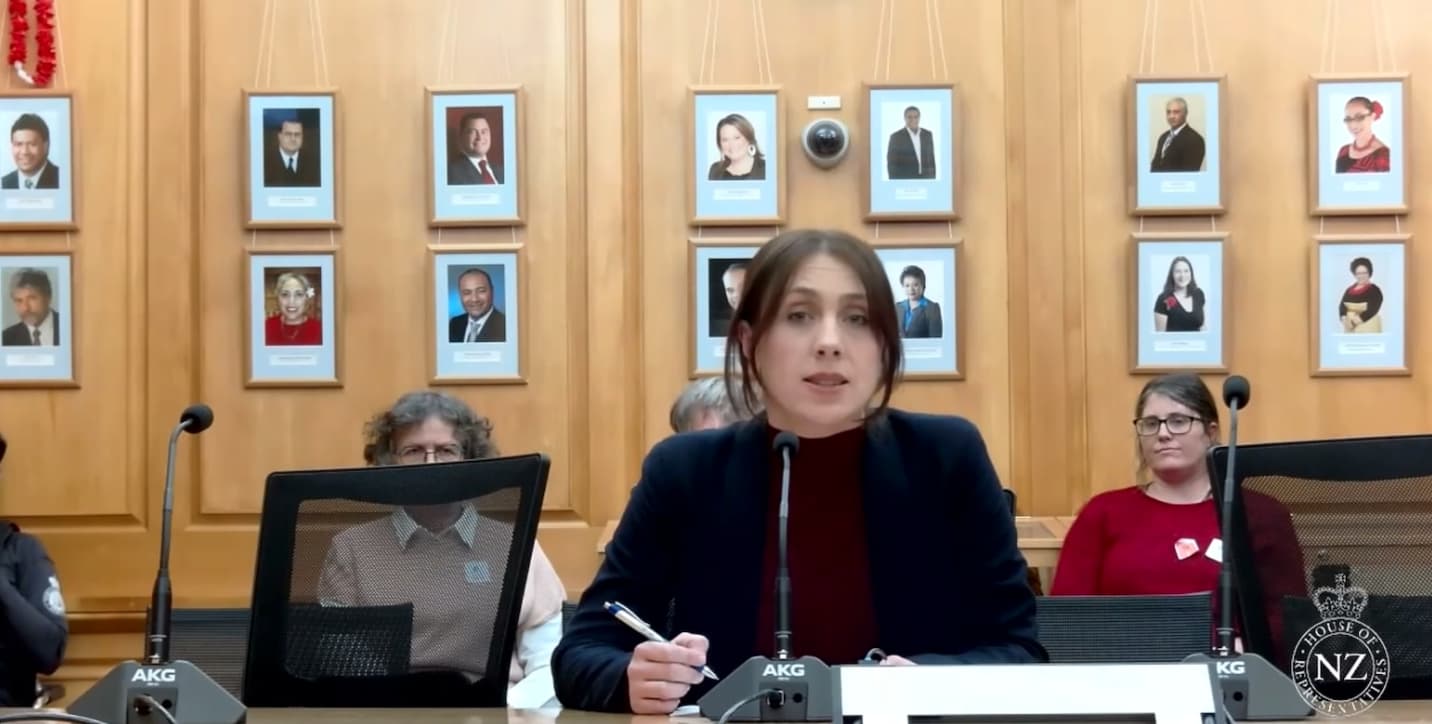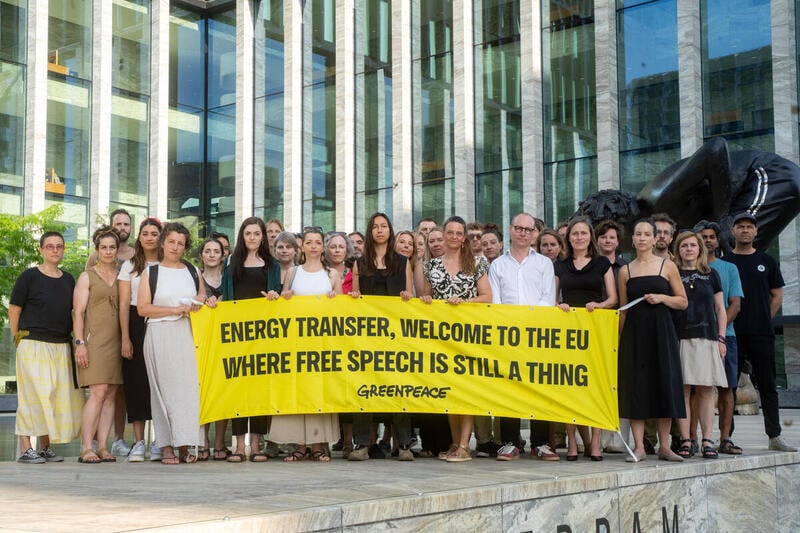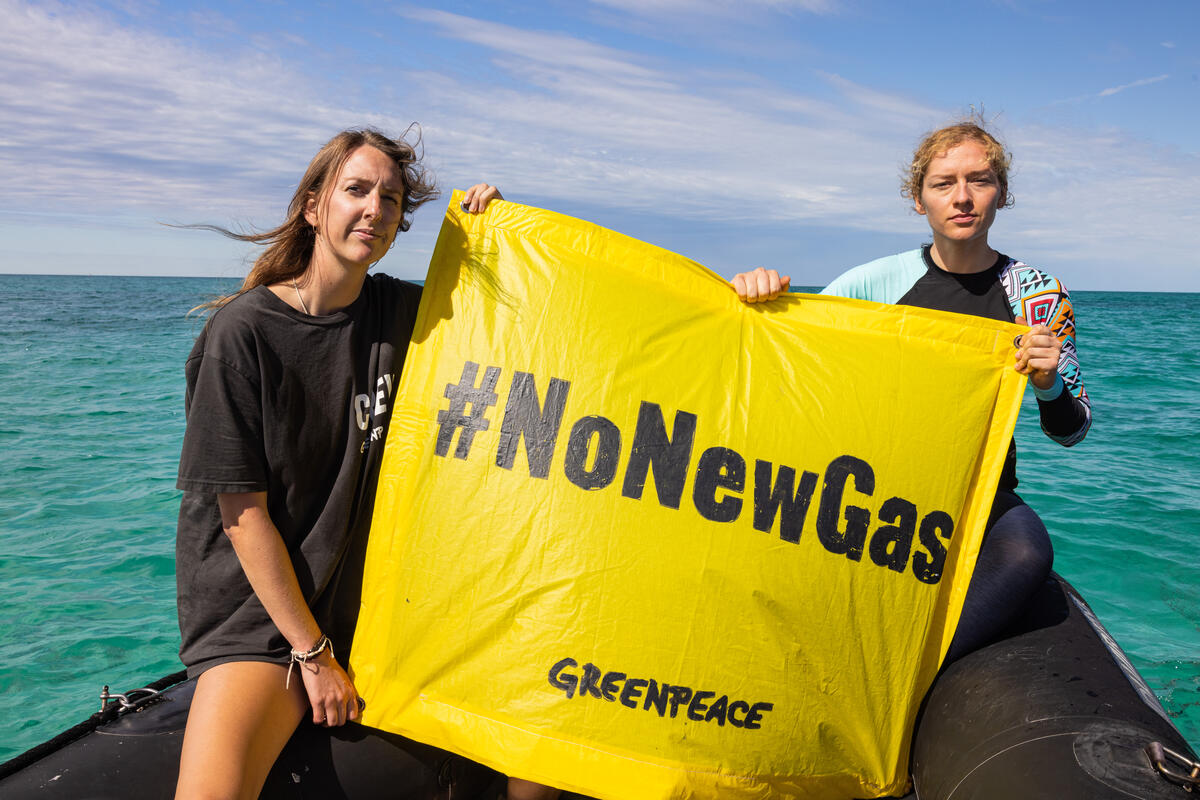Agribusiness turkeys don’t vote for an early Xmas
After six years, we can definitively say that the Government’s failure to cut agribusiness climate pollution shows that seeking consensus with polluters does not work, but campaigning from the outside can.
Before we grapple with the reality that the New Zealand general election has delivered a National-led government with plans to weaken and reverse climate policy, now is a good moment to reflect on the lessons of the last six years of the New Zealand Government climate policy.
For six years, we had a Prime Minister who told the world they took climate change very seriously and a Green Party Climate Minister. An auspicious platform for real climate action.
A few big wins
There have been some significant climate actions from the Government but, unfortunately, agribusiness, by far the biggest climate polluter, has been allowed to carry on with business as usual, and this has been justified under the rubric of consensus and ‘working with industry’.
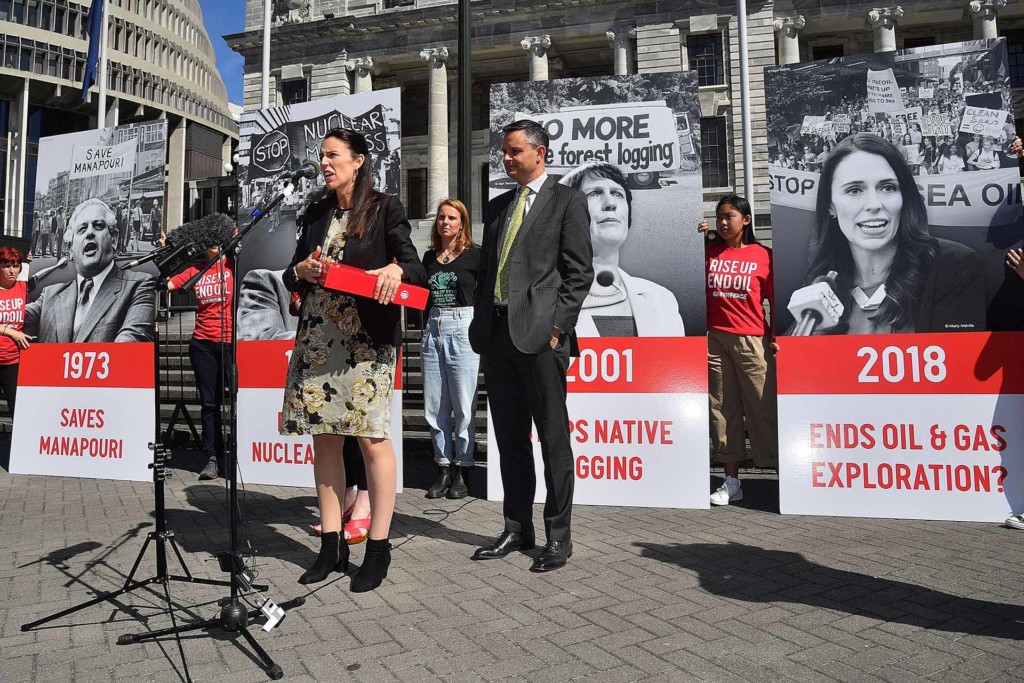
On the positive side of the ledger, two wins stand out, both for their climate significance and how they were achieved. Firstly, the ban on new offshore oil and gas exploration permits. A win that was built on a solid platform of years of campaigning and peaceful civil disobedience by environmental groups and tangata whenua. We confronted the oil industry and made no attempt to achieve consensus with the polluting industries because there was none to be had. The second win was the cap on synthetic nitrogen fertiliser, which again was built on the back of years of freshwater campaigning and done against opposition by agribusiness. Capping and reducing fertiliser use is fundamental to cutting agribusiness climate and freshwater pollution, in part because it limits cow numbers.
Outside of these two significant policy wins, there are some mid-level gains like taxpayers paying NZ Steel to close down virgin steel production, paying Fonterra to replace coal with electricity in a few boilers, fuel efficiency standards for cars, the rail investment, reform of the Emissions Trading Scheme and others. And they are worth remembering, though they need to be balanced against all the terrible climate decisions like billions spent on new motorways and the failure to build a cycle network etc etc.
The cow in the room
But here, I want to focus on New Zealand’s biggest climate polluter, agribusiness. Agribusiness emissions are more than 50% of all the climate pollution from this country, compared to less than 20% from transport and less than 10% from electricity generation. And their emissions have risen rapidly as the dairy herd grew dramatically. The Government’s Greenhouse Gas Inventory published in April this year showed emissions from dairy cattle rose 123% from 1990 to 2021. Yep, more than doubled!
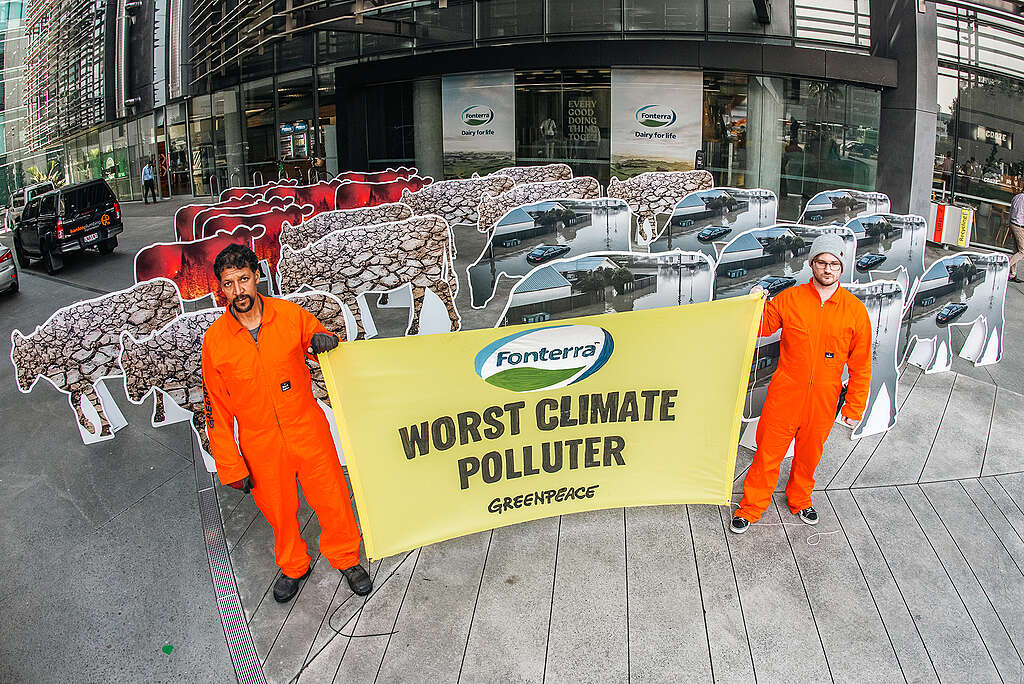
And it’s not just climate. Industrial agribusiness is the driver of freshwater pollution of our rivers and lakes and contamination of groundwater and, hence drinking water. The latest Land and Water Aotearoa report from September found elevated harmful bacteria and impaired ecological health in two-thirds of monitored rivers, and, get this, not a single monitored lake shallower than 10 metres is in very good health. Not a single one! There are 1,500 monitoring sites on rivers and 200 on lakes.
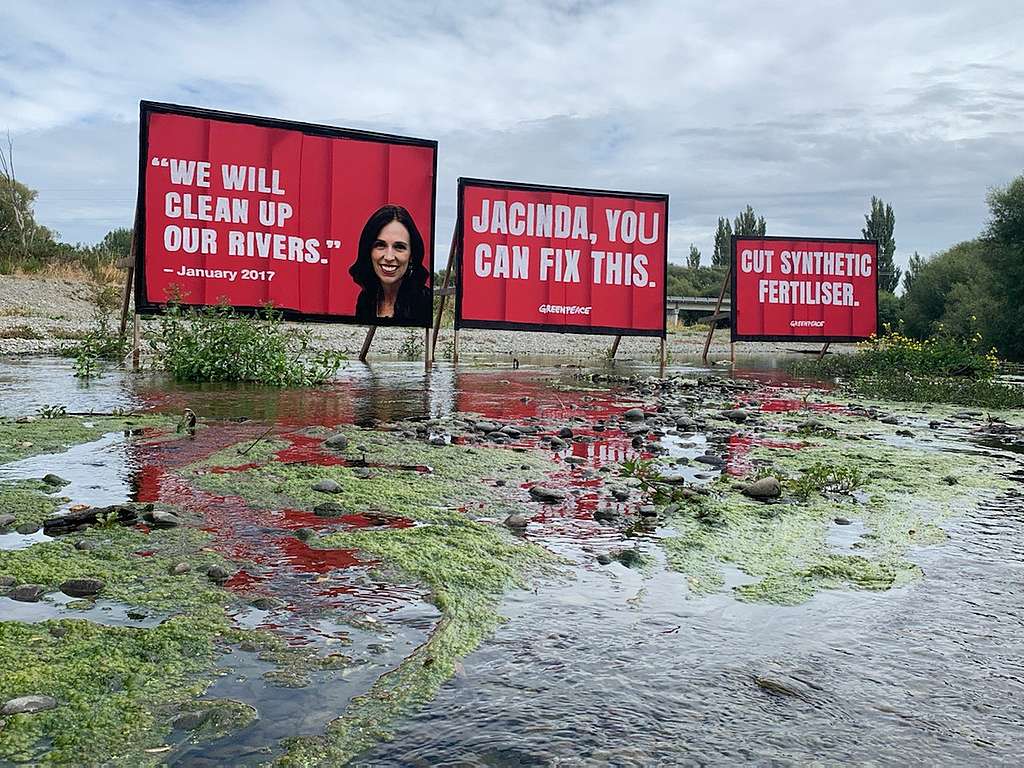
Did I mention the two million tonnes of palm kernel imported from the destroyed rainforests of Indonesia and Malaysia each year to feed dairy cattle? These emissions are not even included in New Zealand’s climate inventory.
You get the drift. Agribusiness is to New Zealand what coal and gas are to Australia, or tar sands to Canada. Imagine if the Australian Climate Minister did absolutely nothing about coal mines or gas expansion?
And yet, for the last six years in Aotearoa, there has been precious little government policy aimed at cutting agricultural emissions.
The toothless Zero Carbon Act
The Government’s pre-eminent piece of law for cutting emissions, as they have told us over and over, is the Zero Carbon Act. The Zero Carbon Act has a lot of plans and targets, but when it comes to agriculture in particular, it can most accurately be called the Zero Climate Action Act.
The New Zealand Climate Minister has said that the New Zealand Zero Carbon Act makes it legally binding on the government to cut emissions to meet the Paris targets. Except when this was tested in court the Climate Minister’s lawyers argued the exact opposite – and won. Lawyers for Climate Action took action against the Government, arguing that the Government was not doing enough to cut emissions to meet the Paris commitments, as they thought the Government was required to do by the Zero Carbon Act. They lost. The Climate Minister’s lawyers argued in court that the references to the Paris Agreement in the Zero Carbon Act were purely aspirational and, hence, not binding on the government. The judge agreed with the Climate Minister that the Zero Carbon Act’s reference to the Paris commitment was just aspirational, making the whole thing unenforceable on the Government. Incidentally, this part of the Zero Carbon Act will make it much harder for the climate movement to use judicial review against the new Government in the years ahead.
The distinct lack of actual emissions reduction policies for agribusiness meant that the National Party was happy to vote for the Zero Carbon Act. And now, when climate change is raised, the leader of the National Party and future Prime Minister Chris Luxon says – to prove his climate credentials – that he voted for the Zero Carbon Act. And it’s true he did vote for it because he understood it.
Putting aside the distraction of the Zero Carbon Act, the main policy instrument floated by the Government to specifically limit agribusiness climate pollution was to put a price on agricultural emissions, but six years later, this has not happened. I have told the long story of how the New Zealand Government came to do nothing to put a price on agribusiness emissions elsewhere (and it is covered really well on Radio NZ also), so here is the short version.
Originally under the Labour / New Zealand First coalition agreement in 2017, agribusiness was to enter the Emissions Trading Scheme, paying for just 5% of their pollution. Labour had to give New Zealand First a lot of policy to get that included in the agreement (remember Labour’s water pricing policy that disappeared). But agribusiness was alarmed by the prospect and put up an alternative – a voluntary bogus industry scheme for pricing agricultural emissions called He Waka Eke Noa.
He Waka Eke Noa was a laughable proposition – as if the polluting industries would agree to a serious price on their pollution? No vaguely sensible Labour or Green politician would agree to that, would they?
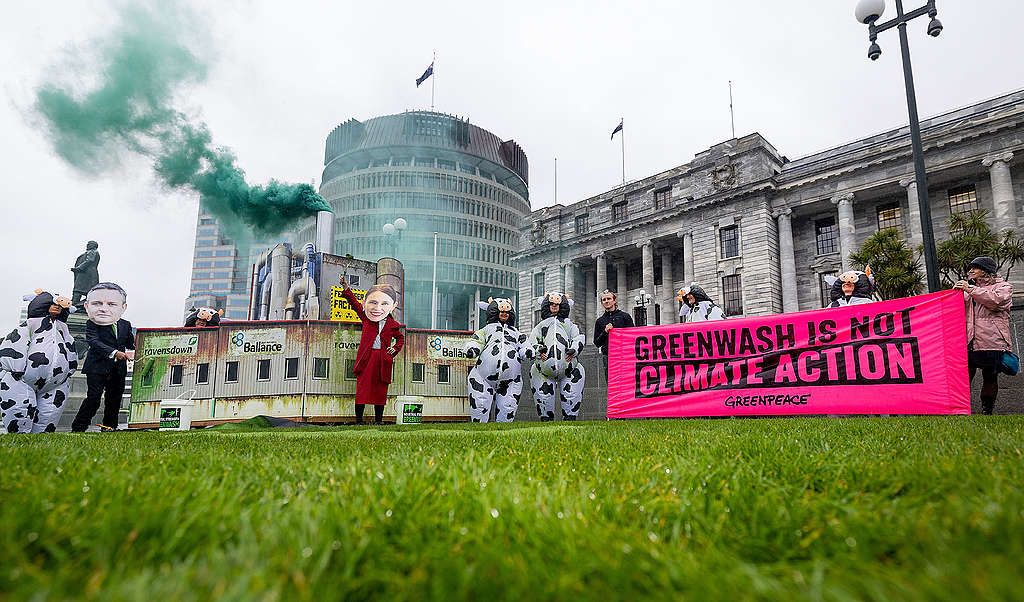
But in a dramatic u-turn on climate policy in October 2019, Jacinda Ardern and James Shaw announced that a consensus had been reached with industry on cutting agribusiness emissions. They welcomed He Waka Eke Noa and shelved the plan to put agribusiness into the ETS. He Waka Eke Noa was a multiyear project to delay agribusiness emissions pricing while industry developed various options for such a pricing mechanism. Without a hint of irony, Prime Minister Jacinda Ardern told us, “For too long politicians have passed the buck and caused uncertainty for everyone while the need for climate action was clear.” The Green Climate Minister James Shaw said that “This will help keep our planet safe for future generations.”
Four years later, He Waka Eke Noa has delivered absolutely nothing but delay and greenwashing, exactly as industry intended. There is no price and there is no prospect of a price. Agribusiness delivered a master class in predatory delay.
The Government decision to backtrack on making agribusiness pay for its emissions, and to embrace the predatory delay of He Waka Eke Noa, was the defining moment of climate policy for the Government. Once they backtracked, agribusiness knew it had nothing to fear and that business as usual would prevail on climate policy.
On a personal note, the only really heated face-to-face argument I had with Ardern was on her surrendering to agribusiness on climate. It was a bitter argument, but then it was a bitter defeat for the climate movement.
This outcome was entirely predictable, and people like myself predicted it at the time because it is obvious. Polluting industries do not voluntarily agree to cut their pollution, they have to be regulated by the government, acting for the common good. He Waka Eke Noa was transparently designed by industry to delay emissions pricing until there was a change of government. And here we are.
We all pay the price
But what does this mean for New Zealand’s Paris Agreement commitment of a 50% cut by 2030? Given that agribusiness is New Zealand’s biggest polluter, the failure of the government to do anything to cut its emissions has made it difficult for New Zealand to meet its Paris commitment.
The Government’s current best guess is that they are a hundred million tonnes of carbon short of meeting the Paris target. So instead of cutting emissions, the Government has decided to buy offshore carbon credits to meet two-thirds of the “cuts”. Two-thirds of the so-called cuts in emissions promised by New Zealand in its “Nationally Determined Contribution” in the Paris Agreement are not cuts at all but offshore credits.
And, as an aside, just to underline how deep the greenwashing goes, New Zealand Government officials lobbied to remove references to plant-based food, as part of the climate solution, in IPCC reports. Once you are dancing to the agribusiness tune you gotta dance no matter how bad the music.
Treasury reckons it will cost somewhere between three and twenty-three billion dollars to buy those credits to cover New Zealand’s Paris shortfall, depending on just how dodgy they are. And most of them are very dodgy.
And how much have the political parties actually budgeted for these mythical carbon offsets in their recently announced election fiscal plans? Zero dollars. There is no plan to cut emissions to meet the target, and no budget line to pay for the dodgy carbon credits.
And of course whenever Luxon is asked about his commitment to climate, he says National fully supports the New Zealand Government’s Paris commitment. Indeed.
And that is the short story of how trying to reach consensus with agribusiness polluters on cutting their pollution led to no action to cut agribusiness emissions, and loads of greenwashing on the international stage to cover up the truth of it. It was entirely predictable, because there is no consensus to be found – the polluters want to keep polluting and the climate movement wants to cut their pollution. If you want to avoid the conflict involved in cutting pollution then you don’t really want to cut pollution.
All is not lost
To finish on a positive note, the only serious efforts to regulate agricultural pollution over the last six years have come via the efforts of the Environment Minister David Parker to cap fertiliser use and limit freshwater pollution. This came after a long campaign by environment groups and required strenuous efforts by the movement over the years of this government. While these freshwater regulations are weaker than I had hoped, nonetheless a side effect of them will be to marginally reduce agricultural climate pollution by a few percentage points as dairy cow numbers and fertiliser are restricted to protect freshwater. For these efforts Parker has earned the ire of agribusiness lobby groups like Groundswell and Federated Farmers. There was no consensus because the regulations will have an actual real-world effect, and polluters do not like being made to cut their pollution.
It is by regulating polluters, despite their well-funded opposition, that we saved the ozone layer, got lead out of petrol, and it’s how we will save the climate. But it will require a climate movement that has learnt the hard lesson of the last six years: When we fight we can win, when we don’t we are guaranteed to lose. Polluting turkeys don’t vote for an early Christmas.

